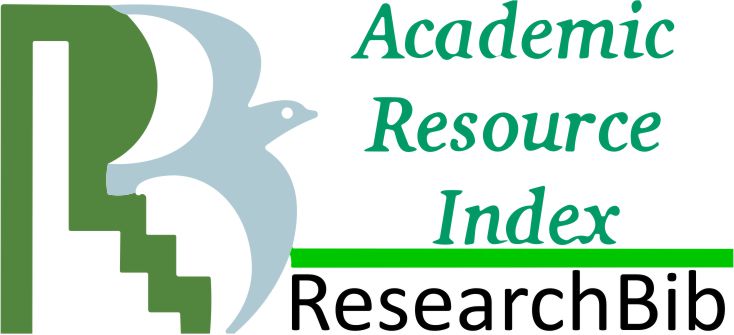DOI
10.21002/jaki.2024.06
Abstract
We investigated the influence of management characteristics, specifically narcissism, impulsivity, construal mindset, and Machiavellianism, on perceived ambiguity toward accounting standards and the impact of perceived ambiguity toward accounting standards on earnings management tendencies. We surveyed 116 respondents from undergraduate, master's, and doctoral programs at various universities in Indonesia. We found that construal mindset, impulsivity, and Machiavellianism positively were related to perceived ambiguity toward accounting standards. Perceived ambiguity toward accounting standards has also been shown to affect earnings management tendencies positively. However, we did not find that narcissism was related to perceived ambiguity toward accounting standards. Additionally, we did not find that narcissism and construal mindset were positively related to earnings management tendencies when mediated by perceived ambiguity toward accounting standards. This research aims to provide a deeper understanding of how management characteristics influence earnings management practices.
Bahasa Abstract
Penelitian ini menyelidiki pengaruh karakteristik manajemen yaitu narsisme, impulsif, pola pikir konstrual, dan Machiavellianisme terhadap persepsi ambiguitas terhadap standar akuntansi, serta pengaruh ambiguitas persepsian terhadap standar akuntansi pada kecenderungan manajemen laba. Kami melakukan survey pada 116 responden dari kalangan sarjana, magister, dan doktoral di berbagai universitas di Indonesia. Kami menemukan bahwa pola pikir konstrual, impulsif, dan machiavellianisme berhubungan positif dengan ambiguitas persepsian terhadap standar akuntansi. Ambiguitas persepsian terhadap standar akuntansi juga terbukti berpengaruh positif pada kecenderungan manajemen laba. Selain itu, kami menemukan bukti bahwa impulsif dan machiavellianisme berhubungan positif dengan kecenderungan manajemen laba yang dimediasi oleh persepsi ambiguitas terhadap standar akuntansi. Namun, kami tidak menemukan bahwa narsisme berhubungan dengan ambiguitas persepsian terhadap standar akuntansi. Kami juga tidak menemukan bahwa narsisme dan pola pikir konstrual berhubungan positif dengan kecenderungan manajemen laba yang dimediasi oleh persepsi ambiguitas terhadap standar akuntansi. Penelitian ini diharapkan dapat memberikan pemahaman yang lebih mendalam mengenai permasalahan bagaimana karakteristik manajemen dapat mempengaruhi praktik manajemen laba.
References
Ames, D. R., P. Rose, and C. P. Anderson. 2006. The NPI-16 as a Short Measure of Narcissism. Journal of Research in Personality, 40 (4), 440–450.
Belgasem-Hussain, A. A., and Y. I. Hussaien. 2023. Earnings Management as an Ethical Issue in view of Kohlberg’s Theory of Moral Reasoning. In Journal of Financial Crime, 30 (1), 522–535.
Borgholthaus, C. J., J. V. White, and P. D. Harms. 2023. CEO Dark Personality: A Critical Review, Bibliometric Analysis, and Research Agenda. In Personality and Individual Differences, 201.
Brennan, N. M. 2021. Connecting Earnings Management to the Real World: What Happens in the Black Box of the Boardroom? British Accounting Review, 53 (6).
Buchholz, F., K. Lopatta, and K. Maas. 2020. The Deliberate Engagement of Narcissistic CEOs in Earnings Management. Journal of Business Ethics, 167 (4), 663–686.
Callao, S., and J. I. Jarne. 2010. Have IFRS Affected Earnings Management in the European Union? Accounting in Europe, 7 (2), 159–189.
Campbell, W. K., B. J. Hoffman, S. M. Campbell, and G. Marchisio. 2011. Narcissism in Organizational Contexts. Human Resource Management Review, 21 (4), 268–284.
Capalbo, F. et al. 2018. The Impact of CEO Narcissism on Earnings Management. Abacus, 54 (2), 210–226.
Capkun, V., D. Collins, and T. Jeanjean. 2016. The effect of IAS/IFRS Adoption on Earnings Management (Smoothing): A Closer Look at Competing Explanations. Journal of Accounting and Public Policy, 35 (4), 352-394.
Chambers, V. A., P. M. J. Reckers, and S. M. Whitecotton. 2023. It’s not Always Black and White Identifying Characteristics of Managers who Perceive and Use Ambiguity in Accounting to Their Advantage. Behavioral Research in Accounting, 35(1), 45–65.
Christie, R. and L. F. Geis. 1970. Studies in Machiavellianism. Academic Press, New York, NY.
Dahling, J. J., B. G. Whitaker, and P. E. Levy. 2009. The Development and Validation of A New Machiavellianism Scale. Journal of Management, 35 (2), 219–257
Dalton, D., and R. R. Radtke. 2013. The Joint Effects of Machiavellianism and Ethical Environment on Whistle-Blowing. Journal of Business Ethics, 117 (1), 153–172.
Doukakis, L. C. 2014. The Effect of Mandatory IFRS Adoption on Real and Accrual-based Earnings Management Activities. Journal of Accounting and Public Policy, 33 (6), 551–572.
Dworkis, K. K., and S. Mark Young. 2023. Adaptive Narcissism, Maladaptive Narcissism, and the Effectiveness of Managerial Incentives. In Advances in Management Accounting, 34, 1–32.
Fujita, K., Y. Trope, N. Liberman, and M. Levin-Sagi. 2006. Construal Levels and Self-control. Journal of Personality and Social Psychology, 90 (3), 351–367.
Hackenbrack, K., and M. W. Nelson. 1996. Auditors’ Incentives and Their Application of Financial Accounting Standards. Accounting Review, 71 (1), 43–59.
Ham, C., M. Lang, N. Seybert, and S. Wang. 2017. CFO Narcissism and Financial Reporting Quality. Journal of Accounting Research, 55 (5), 1089–1135.
Hair, J. F., C. M. Ringle, and M. Sarstedt. 2011. PLS-SEM: Indeed a Silver Bullet. Journal of Marketing Theory and Practice, 19 (2), 139–152.
Hambrick, D. C., and P. A. Mason. 1984. Upper Echelons: The Organization as a Reflection of Its Top Managers. Academy of Management Review, 9 (2), 193–206.
Healy, P. M., and J. M. Wahlen. 1999. A Review of the Earnings Management Literature and Its Implications for Standard Setting. In Accounting Horizons, 13 (4), 1–34.
Henseler, J., G. Hubona, and P. A. Ray. 2016. Using PLS Path Modeling in New Technology Research: Updated Guidelines. Industrial Management & Data Systems, 116 (1), 2–20.
Hermann, A. D., J. D. Foster, and A. B. Brunell. 2018. Handbook of Trait Narcissism: Key Advances, Research Methods, and Controversies. Handbook of Trait Narcissism: Key Advances, Research Methods, and Controversies, February, 1–490.
Gupta, A., and N. Arora. 2017. Understanding Determinants and Barriers of Mobile Shopping Adoption Using Behavioral Reasoning Theory. Journal of Retailing and Consumer Services, 36, 1–7.
Jeanjean, T., and H. Stolowy. 2008. Do Accounting Standards Matter? An Exploratory Analysis of Earnings Management Before and After IFRS Adoption. Journal of Accounting and Public Policy, 27 (6), 480–494.
Jensen, M. C., and W. H. Meckling. 1976. Theory of the Firm: Managerial Behavior, Agency Costs and Ownership Structure. Journal of Financial Economics, 3 (4), 305–360.
Johnson, S. L., C. S. Carver, S. Mulé, and J. Joormann. 2013. Impulsivity and Risk for Mania: Towards Greater Specificity. Psychology and Psychotherapy: Theory, Research and Practice, 86 (4), 401–412.
Kadous, K., S. Jane Kennedy, and M. E. Peecher. 2003. The effect of Quality Assessment and Directional Goal Commitment on Auditors’ Acceptance of client-Preferred Accounting Methods. Accounting Review, 78 (3).
Kish-Gephart, J. J., D. A. Harrison, and L. K. Treviño. 2010. Bad Apples, Bad Cases, and Bad Barrels: Meta-Analytic Evidence About Sources of Unethical Decisions at Work. Journal of Applied Psychology, 95 (1), 1–31.
Kontesa, M., R. Brahmana, and A. H. H. Tong. 2021. Narcissistic CEOs and Their Earnings Management. Journal of Management and Governance, 25 (1), 223–249.
Lapointe-Antunes, P., K. Veenstra, K. Brown, and H. Li. 2022. Welcome to the Gray Zone: Shades of Honesty and Earnings Management. Journal of Business Ethics, 177 (1), 125–149.
Lin, F., S. W. Lin, and W. C. Fang. 2020. How CEO Narcissism Affects Earnings Management Behaviors. North American Journal of Economics and Finance, 51.
Mårtensson, E. 2017. Construal Level Theory and Moral Judgments: How Thinking Abstractly Modifies Morality. Journal of European Psychology Students, 8 (1), 30–40.
McSweeney, B. 1997. The Unbearable Ambiguity of Accounting. Accounting, Organizations and Society, 22 (7), 691–712.
Miller, J. D. et al. 2011. Grandiose and Vulnerable Narcissism: A Nomological Network Analysis. Journal of Personality, 79 (5), 1013–1042.
Motro, D., L. D. Ordóñez, A. Pittarello, and D. T. Welsh. 2018. Investigating the Effects of Anger and Guilt on Unethical Behavior: A Dual-Process Approach. Journal of Business Ethics, 152 (1), 133–148.
Mueller, J. S., C. J. Wakslak, and V. Krishnan. 2014. Construing Creativity: The How and Why of Recognizing Creative Ideas. Journal of Experimental Social Psychology, 51, 81–87.
Nelson, M. W. 2003. Behavioral Evidence on the Effects of Principles and Rules-based Standards. In Accounting Horizons, 17 (1), 91–104.
Nunnally, J. C., and I. H. Bernstein. 1994. Psychometric Theory / Jum C. Nunnally, Ira H. Bernstein. In Psychometric Theory.
O’Boyle, E. H., D. R. Forsyth, G. C, Banks, and M. A. McDaniel. 2012. A Meta-Analysis of the Dark Triad and Work Behavior: A Social Exchange Perspective. Journal of Applied Psychology, 97 (3), 557–579.
Olsen, K. J., K. K. Dworkis, and S. Mark Young. 2013. CEO Narcissism and Accounting: A Picture of Profits. Journal of Management Accounting Research, 26 (2), 243–267.
Padilla, A., R. Hogan, and R. B. Kaiser. 2007. The Toxic Triangle: Destructive Leaders, Susceptible Followers, and Conducive Environments. Leadership Quarterly, 18 (3), 176–194.
Patton, J. H., M. S. Stanford, and E. S. Barratt. 1995. Factor Structure of the Barratt Impulsiveness Scale. Journal of Clinical Psychology, 51 (6), 768–774.
Pincus, A. L. et al. 2009. Initial Construction and Validation of the Pathological Narcissism Inventory. Psychological Assessment, 21 (3), 365–379.
Pyszczynski, T., and J. Greenberg. 1987. Self-Regulatory Perseveration and the Depressive Self-Focusing Style: A Self-Awareness Theory of Reactive Depression. In Psychological Bulletin, 102 (1), 122–138.
Qi, B., J. W. Lin, G. Tian, and H. C. X. Lewis. 2018. The Impact of Top Management Team Characteristics on the Choice of Earnings Management Strategies: Evidence from China. Accounting Horizons, 32 (1), 143–164.
Sayal, K., and G. Singh. 2020. Investigating the Role of Theory of Planned Behavior and Machiavellianism in Earnings Management Intentions. Accounting Research Journal, 33 (6), 653–668.
Schreiber, L. R. N., J. E. Grant, and B. L. Odlaug. 2012. Emotion Regulation and Impulsivity in Young Adults. Journal of Psychiatric Research, 46 (5), 651–658.
Shafer, W. E., and Z. Wang. 2011. Effects of Ethical Context and Machiavellianism on Attitudes Toward Earnings Management in China. Managerial Auditing Journal, 26 (5), 372–392.
Thoroughgood, C. N., A. Padilla, S. T. Hunter, and B. W. Tate. 2012. The Susceptible Circle: A Taxonomy of Followers Associated with Destructive Leadership. Leadership Quarterly, 23 (5), 897–917.
Trope, Y., and N. Liberman. 2010. Construal-Level Theory of Psychological Distance. Psychological Review, 117 (2), 440–463.
Vallacher, R. R., and D. M. Wegner. 1989. Levels of Personal Agency: Individual Variation in Action Identification. Journal of Personality and Social Psychology, 57 (4), 660–671.
Weisbrod, E. 2009. The Role of Affect and Tolerance of Ambiguity in Ethical Decision Making. Advances in Accounting, 25 (1), 57–63.
Welsh, D. T., M. D. Baer, H. Sessions, and N. Garud. 2020. Motivated to Disengage: The Ethical Consequences of Goal Commitment and Moral Disengagement in Goal Setting. Journal of Organizational Behavior, 41 (7), 663–677.
Whiteside, S. P., and D. R. Lynam. 2001. The Five Factor Model and Impulsivity: Using a Structural Model of Personality to Understand Impulsivity. Personality and Individual Differences, 30 (4), 669–689.
Winter, S. J., A. C. Stylianou, and R. A. Giacalone. 2004. Individual Differences in the Acceptability of Unethical Information Technology Practices: The Case of Machiavellianism and Ethical Ideology. Journal of Business Ethics, 54 (3), 275–296.
Young, S. M., F. Du, K. K. Dworkis, and K. J. Olsen. 2016. It’s All About All of Us: The Rise of Narcissism and Is Implications for Management Control System Research. Journal of Management Accounting Research, 28 (1), 39–55.
Zajenkowski, M., and A. Z. Czarna. 2015. What Makes Narcissists Unhappy? Subjectively Assessed Intelligence Moderates the Relationship Between Narcissism and Psychological Well-Being. Personality and Individual Differences, 77, 50–54.
Žeželj, I. L., and B. R. Jokić. 2014. Replication of Experiments Evaluating Impact of Psychological Distance on Moral Judgment. Social Psychology, 45 (3), 223–231.
Recommended Citation
Suci, Patricia Paramitha and Fajar, Stella Marissa Permata
(2024)
"THE EFFECT OF MANAGEMENT CHARACTERISTICS ON EARNINGS MANAGEMENT THROUGH PERCEIVED AMBIGUITY IN ACCOUNTING STANDARDS,"
Jurnal Akuntansi dan Keuangan Indonesia: Vol. 21:
No.
1, Article 6.
DOI: 10.21002/jaki.2024.06
Available at:
https://scholarhub.ui.ac.id/jaki/vol21/iss1/6












